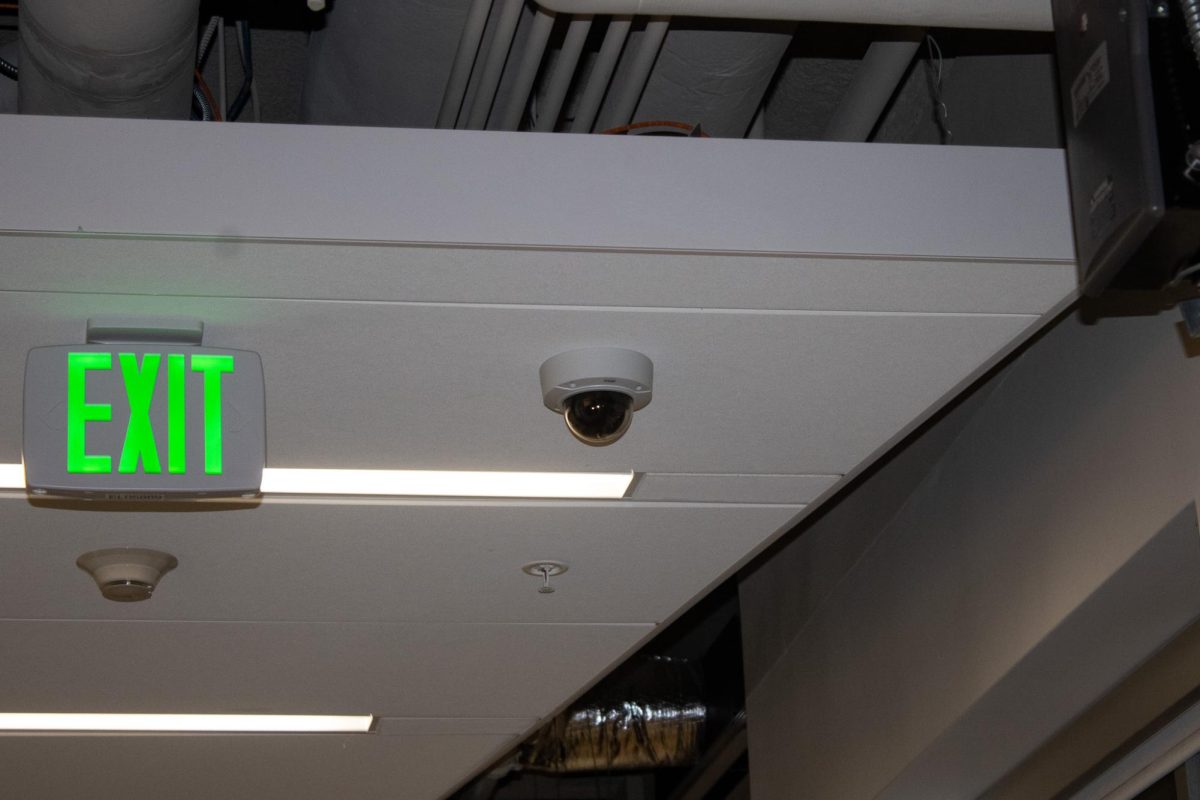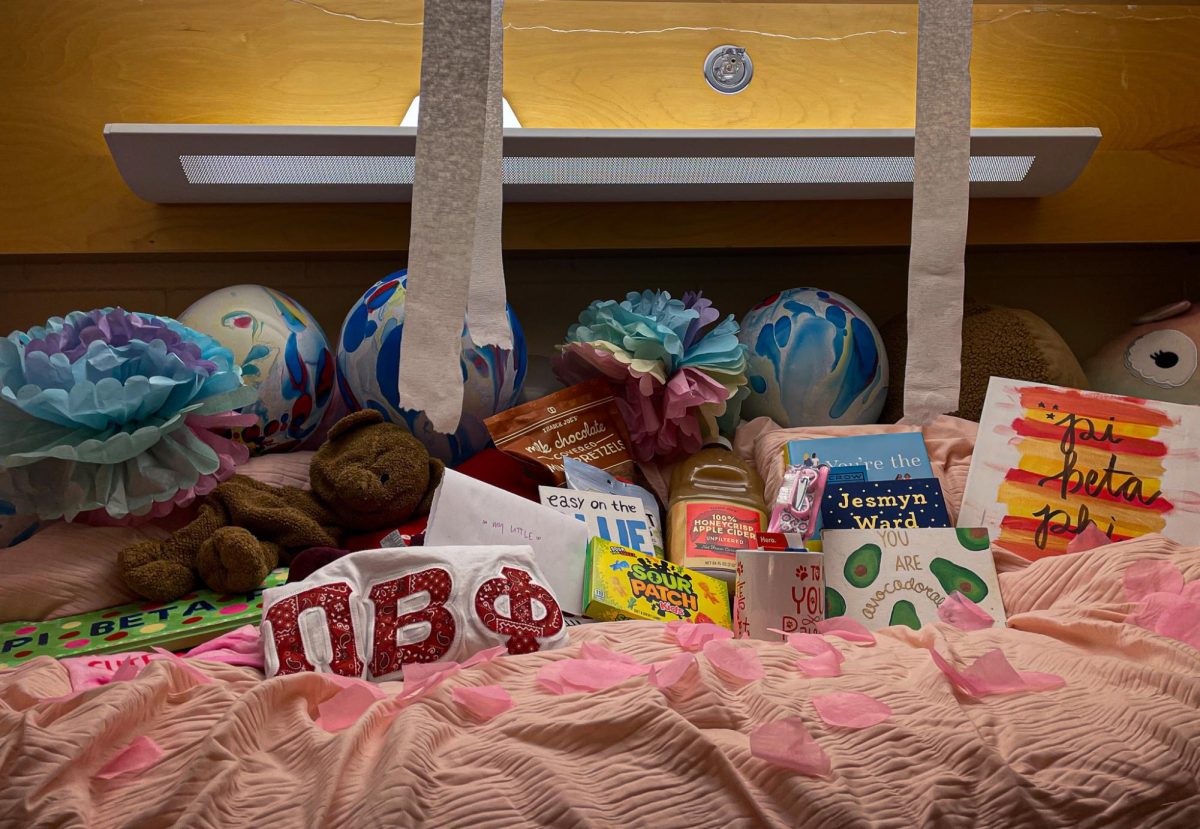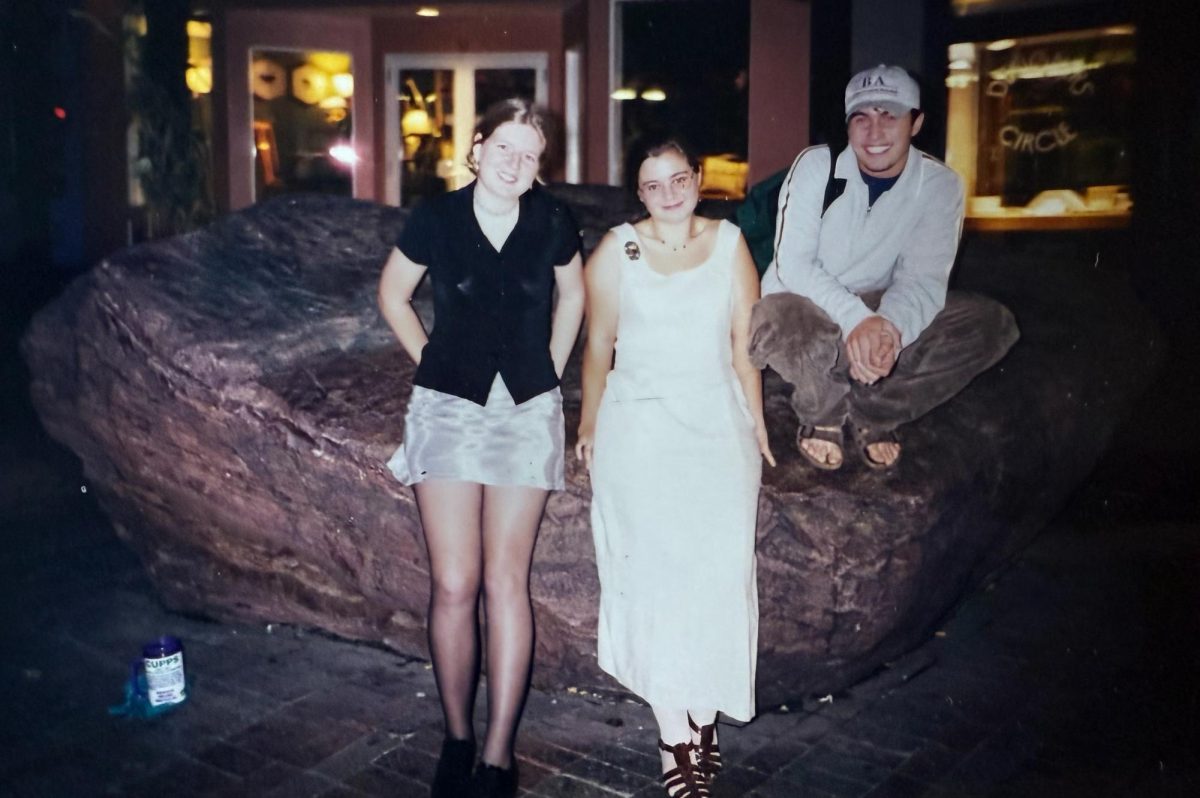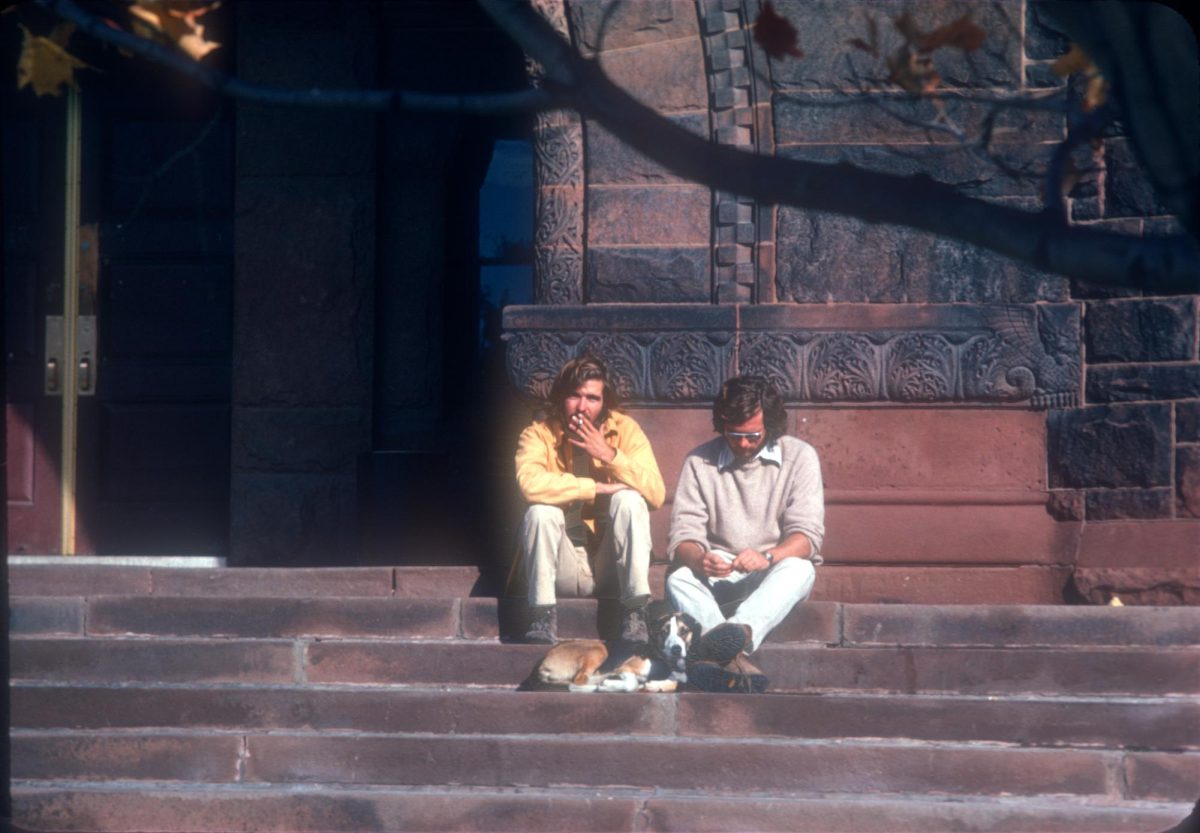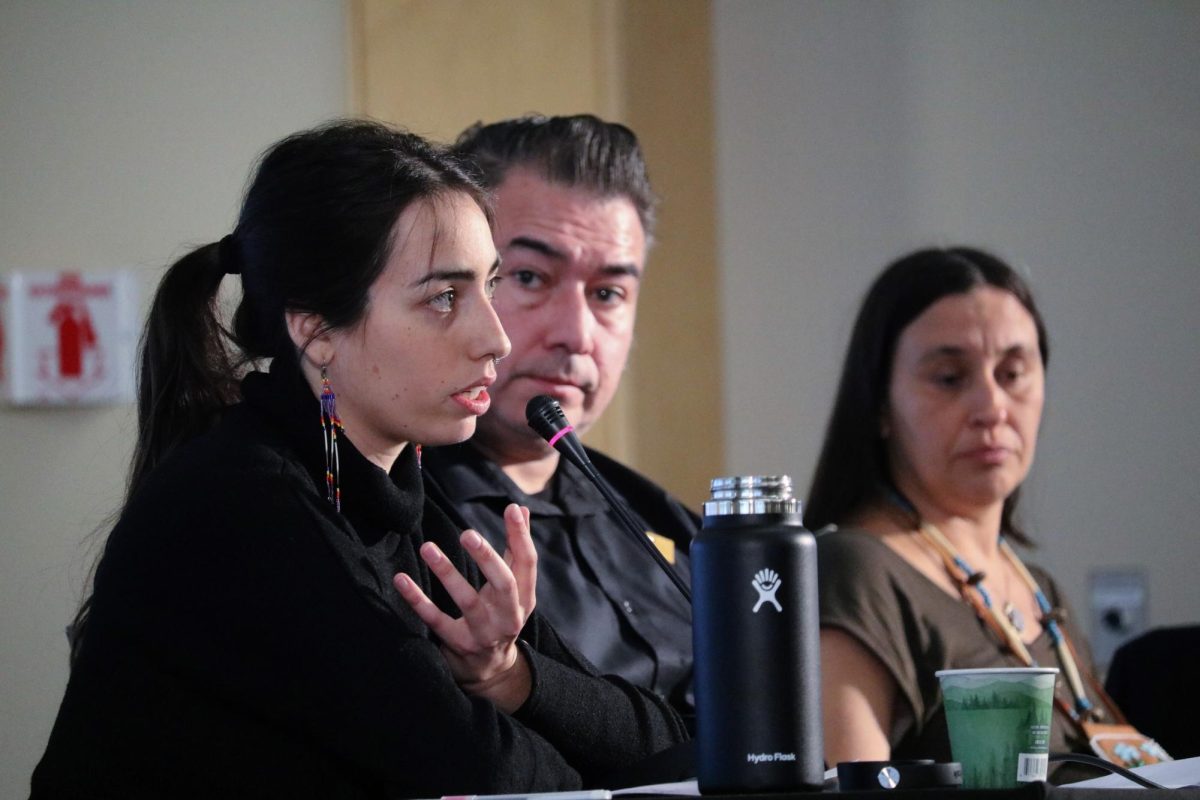For most first-years, move-in weekend was filled with new friendships, dining hall ice cream and relentless icebreakers. Something new students weren’t expecting was a residence hall break in.
First-year Elena Gibbons hadn’t even finished unpacking when she, along with her five fellow suitemates, heard a late-night knock on their L/L D door. The peephole revealed an older man with his hand on the doorknob, Gibbons said.
“It was definitely scary, even though it turned out that he wasn’t a threat or anything. We didn’t know that at the time,” Gibbons said.
Both the resident advisors on duty and the UVM Police were immediately notified and were able to locate the man, who was lying in a nearby common room. The intruder’s intentions were unclear, Gibbons said.
“When the RAs saw him in the room next to us, we didn’t know if he had a weapon or how he could have gotten in the building or if he had been in there for a long time,” Gibbons said.
The RAs concluded that he was unhoused and was attempting to find a place to spend the night, Gibbons said.
Gibbons, alongside her fellow suitemates, tried to learn more about how and when he entered the allegedly secure building, but were disappointed to learn no cameras showed his trespassing, according to UVM Police Services.
“I do feel safe [in my dorm] but I think, especially after what happened to us, I would have more peace of mind knowing there were cameras in the building,” Gibbons said.
In August alone, there were 44 reports of unsecured premises, according to the UVM Crime and Fire Log. These are instances where a door that should be locked is found unlocked.
The University of Vermont’s Annual Security Report revealed that 2022 had nine incidences of sexual assault and seven cases of domestic violence in student housing facilities. Certain dorms, such as L/L D, have security blind spots that UVM is trying to fix according to Michael Schirling, chief safety and compliance officer.
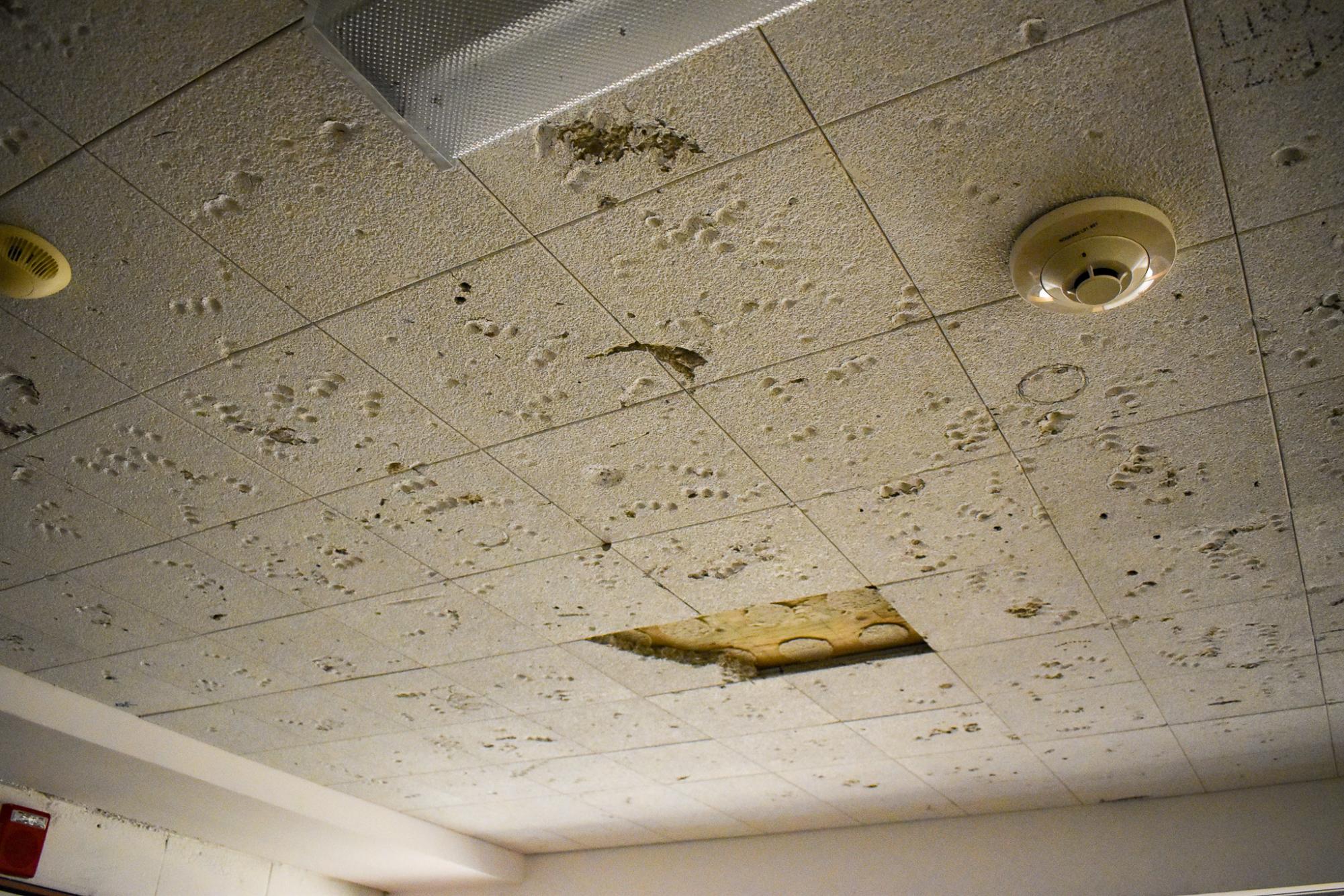
“Most of the residence halls already have coverage, so right now what we’re doing is filling in gaps,” said Schirling. “There’s a plan police services, together with CATcards, created to identify the most prominent gaps where there’s either the most traffic or where there’s [crimes] happening.”
A grant from the US Department of Homeland Security will add 12 cameras around campus this fall. The hope is this money will be recurring and the University plans to reapply for the grant next year. On top of this, more cameras may also be installed through existing core budgets or new construction bridges, further eliminating these blind areas, Schirling said.
More security footage in residential halls may also aid in UVM’s consistent fight against vandalism, the most common crime in residence halls, Schirling said.
“We had a fire set in a residence hall bathroom on a hand sanitizer dispenser last year.” said Schirling, “That was pretty significant. Damage to elevators, carpets, furniture—that’s the bulk of it.”
Simpson Hall saw extensive damage Labor Day weekend as unknown vandals wreaked havoc in the building according to Residential Life. The damage that happens in Simpson typically involves broken ceiling tiles and ripped bulletin boards, said senior RA Seraphina Fecher.
“On my floor, the vandalism consisted of a few broken ceiling tiles, although I know it was worse for Simpson 4 and Simpson 5 [floors],” Fecher said. “There was also a piece of UVM furniture, the top of a desk I believe, in the hall that had sustained some damage.”
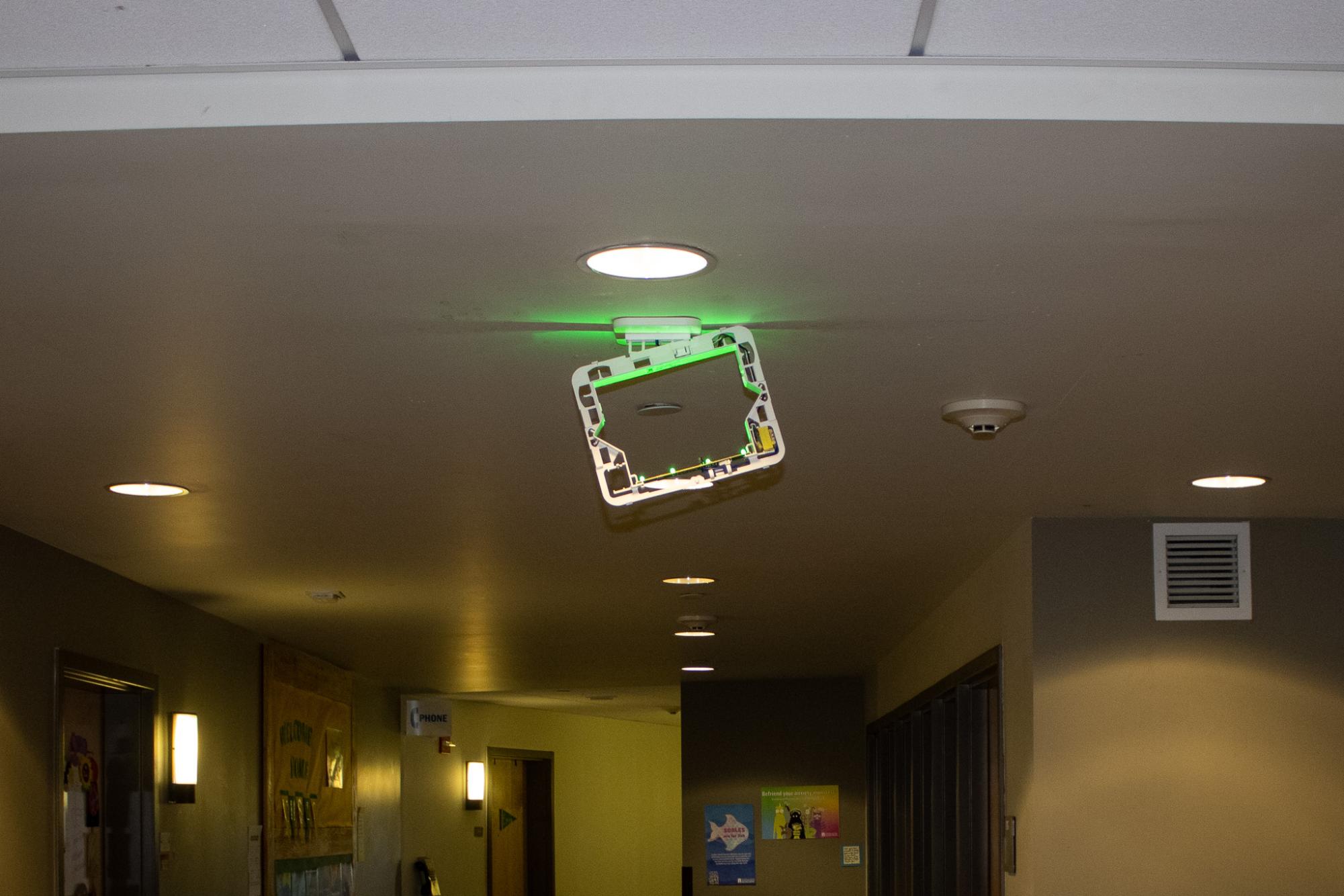
(Sam Wentzell)
Residents are jointly held responsible for damage if the culprits are never found, according to the Residential Life Terms and Conditions contract. This rule forces Simpson Hall residents to pay for the damage.
As of fall 2021, 89% of UVM undergraduates receive scholarships or financial aid. ResLife forcing students to pay for unassigned damage may bring up an equity issue, said first-year Magdalena Keppel.
“A lot of people might not be able to swing that expense for somebody else’s mistakes,” said Keppel.
Although cameras may be helpful in situations of vandalism, the importance of student privacy is similarly a priority, Keppel said.
“I think you’d have to get buy-in from the student body because it’s such a touchy thing.” Keppel said. “It’s basically your home that you’re having somebody look into. But it definitely would have helped this situation and people knowing who was at fault for the issue.”
While current cameras are not watched 24/7, certain footage is watched regularly, either during or after an incident occurs, to understand the situation or the aftermath, said Chief Tim Bilodeau, UVM Deputy Police Chief.
“You certainly have to protect people’s individual space. It’s a residence hall. It’s a house essentially,” Bilodeau said.
To further protect themselves, students are encouraged to lock their dorm rooms at all times and not prop the residence hall doors for strangers. The primary goal is the security of residence halls, above any other buildings on campus, according to Schirling.
“If everyone just spends a few minutes thinking about safety and security each day, it doesn’t have to be a prominent feature, just a little bit of awareness. That’s the biggest piece of the puzzle,” Schirling said.


